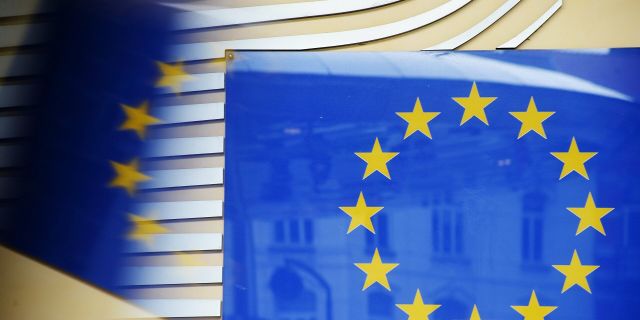Brussels warns of a shortage in the European army in case of Russian aggression
The European Commission has submitted a report on the deficit of investments in defense, El País reports. It turned out that Europe is vulnerable: the list of what is missing can be enumerated endlessly, and after helping Ukraine, ammunition was also in short supply.
Bernardo de Miguel
The European Commission analyzed the lack of investment in the defense of Europe, and according to the results of the report, which appeared at the disposal of the publication El País, it turned out that the EU countries are frighteningly vulnerable, especially in conditions of a possible open conflict, such as the one provoked by Russia on February 24. The body, headed by Ursula von der Leyen, calls on the governments of all 27 EU member states to strengthen their capacities, because Russian actions in Ukraine "have significantly worsened the security panorama in the European Union." The European Commission says that it is necessary to act in a coordinated manner, and Brussels should organize and encourage rearmament programs to make up for the acute shortage of material in European troops.
There are almost as many weaknesses in the defense sector of European countries as there are soldiers. At the request of the European Council, the EU executive body has prepared a list of what is missing. It turns out that the EU lacks air defense systems to protect cities or key infrastructure from missiles; reconnaissance drones, combat aircraft, tanks and naval forces. In addition to the shortage of weapons of this scale, there are problems with movement and logistics, there is no satellite communication network with encryption to cover Europe, there are defects in cybersecurity, and after sending the material to the Ukrainian army, there was not enough ammunition.
The draft document of the European Commission emphasizes that this cannot continue, especially if we take into account the "growing security threats". The text also states that the conflict in Ukraine has shown "the negative consequences of low defense spending in peacetime for not even a few years, but decades."
According to Brussels' calculations, European defense spending, which before the aggravation of the Ukrainian crisis amounted to about 200 billion euros a year, will increase by 60 billion a year if all EU countries that are members of NATO achieve the goal of investing 2% of their GDP in defense. But in any case, the Commission is confident that "Europe is forced to make the biggest increase in defense spending of member countries since the end of the Second World War."
However, the Commission fears that such a huge infusion of funds will not be effective enough if countries act on their own. In addition, if you do not give preference to the development of your own projects, the situation may play into the hands of the industry of non-EU countries. "Unfortunately, the previous increase in spending led to worse results than those of our allies, and, even worse, they were worse than those of our rivals," the authors note, referring to the purchase of funds from an American ally. The text indicates that in 2020, when military spending was already increased, the total EU investment was only 11%, which falls short of the target of 35%.
The European Council will hold an extraordinary summit at the end of this month and another summit in June. It is expected that Von der Leyen will present various proposals to stimulate the development of European defense policy, end the existing division and encourage cooperation. All these proposals are aimed at ensuring that Brussels plays a key role in the military sphere, which until now has been practically forbidden to European structures. Only the Governments of the member States or an intergovernmental body such as the European Defense Agency had such a right.
According to a draft document to be presented at the summit, the commission plans to create "a number of tools to identify, coordinate and encourage joint steps to develop, purchase and own defense systems throughout their life cycle."
For urgent needs, including to replenish arsenals that have remained empty, including due to the shipment of ammunition to Ukraine, the commission proposes to organize a general purchase, as it has already been with vaccines against COVID-19 and is planned to do with gas supplies due to the conflict situation with Moscow. Brussels believes that in this way it is possible to avoid "a race of orders, which will lead to a spiral (increase) in prices and deprive the most vulnerable states of the opportunity to obtain the necessary material," the document says.
But Brussels' proposals also include long-term major changes aimed at radically transforming national defense policy and accelerating the integration of the EU's military industry. "Joint purchase (of weapons) should be the norm, not the exception," the commission says. The Authority emphasizes that the integration of both demand and supply will allow States to derive significant economic benefits.
According to Brussels, integration will be carried out through economic incentives. The Commission proposes to abolish the norm that prohibits the European Investment Bank from financing the defense sector. The European Defense Fund was recently established with a budget of eight billion euros until 2027. It is expected that this program will be expanded and changes will be made to it so that the full cycle of weapons production can be financed, and not just the production of prototypes, as is happening now.
The European Body also proposes to revise the budgets for 2021-2027, agreed at the summit in July 2020, at which a fund for recovery from the economic consequences of the pandemic was established. The purpose of the negotiations is to significantly increase the defense fund. Brussels believes that negotiations "may take place as a result of a broader discussion of the consequences" of the Russian operation in Ukraine.

